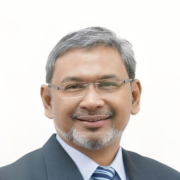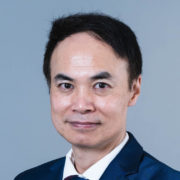
临床研究管治国际会议暨
国际临床试验中心联盟论坛2023
临床研究 · 良好管治 · 成功共创
2023年11月29日 | 香港
上午9时30分 – 下午5时 (GMT+8)
香港尖沙咀金域假日酒店 / 线上
英语 — 普通话即时传译
免费登记 (需要预先登记)
登记链接:即将公布
简介
临床研究管治国际会议暨国际临床试验中心联盟论坛2023为国际生物医学研究界提供绝佳机会,促进他们之间的沟通和知识交流。会议汇集了来自学术机构、医疗机构、临床及医学研究组织、生物医药行业和政府机构的专业代表,一同探讨了临床试验管治的最新趋势。
会议将以混合模式(线上及线下)进行。
演讲嘉宾
议程
08:45 – 09:30
登记(只适用于现场参与)
09:30 – 10:00
开幕式
欢迎致辞
刘泽星教授,香港大学李嘉诚医学院院长,香港特别行政区
开幕致辞
卢宠茂教授,香港特别行政区医务卫生局局长
10:00 – 11:00
主旨报告
主持人:
张文勇教授,创新科技署生物科技总监,香港特别行政区
Mr Robbie Chana, Syneos Health 亚太区业务发展副总裁,新加坡
10:00 – 10:20
世界卫生组织(WHO)如何推动提升临床试验实证的质量?—
关于世界卫生大会2022年的临床试验决议的最新消息

Dr Moorthy has a senior position within the Science Division at WHO. This is a corporate division of WHO’s headquarters created by the current Director-General to ensure that science and evidence lies at the heart of everything that WHO does. Dr. Moorthy is situated in a central Research for Health department that he helped create in 2019, which provides technical support to all of WHO’s disease and service delivery programmes on all matters related to research. He has over 25 years experience as a clinical researcher as follows: qualification in Natural Sciences (first class honours) from the University of Cambridge, UK; a medical degree from University of Oxford; a PhD in clinical trials of malaria vaccines from University of Oxford; 5 years of clinical research based in Africa (South Africa and The Gambia); making decisions about funding clinical trials working for PATH, an NGO based in USA; a career as a clinical academic at the University of Oxford, UK where he completed his internal medicine (FRCP) and infectious diseases subspecialty training; a total of 7 years as a practicing physician. Dr Moorthy joined WHO in 2008 as their lead on malaria vaccines, being promoted to positions of greater responsibility. He is now the lead coordinator on implementation of the World Health Assembly resolution on clinical trials passed in 2022. He has been involved in prioritization, funding, design and implementation of clinical trials that have recruited in over 50 countries, in all 6 WHO regions related to COVID-19, Ebola, Mers-CoV, Lassa fever, malaria, and many other infectious diseases.
The World Health Assembly passed reolution WHA 75.8 on strengthening clinical trials in 2022. This resolution highlighted the benefits of the few well-designed and well-implemented clinical trials that achieved sufficient scale during the pandemic. These saved many millions of lives through identify safe, effective interventions. The resolution also highlighted the thousands of uninformative trials that wasted resources and took participants away from potentially useful trials. Several reforms to the ecosystem are suggested in the resolution which center around efficiencies in approval processes, better prioritization and use of resources, and ensuring trials are well-designed and well-implemented.
The speaker will summarise the background to the resolution and the actions being taken by WHO in line with requests of Member States.
10:20 – 10:40
寒耕暑耘、茁壮成长:构建一站式临床试验中心,赋能生物医药研发生态圈

游广智现为香港大学临床试验中心 (中国) (HKU-CTCC) 首席执行官、香港大学临床试验中心 (HKU-CTC) 执行总监及澳门科技大学医学院客座助理教授,拥有理学士 (生物化学) 及工商管理硕士 (金融财务) 学位。他早于90年代初已开始服务医药界,并从2000年起专注于临床研究管理达二十多年。游广智自2023年初起更获认可为中华人民共和国科学技术部高端外国专家引进计划下的高端外国专家 (临床试验管理),多年来亦于多个本地及国际组织担任多项公职,包括国际临床试验中心联盟 (ICN) 指导委员会委员及前主席、国际医学科学组织理事会 (CIOMS) 研究机构良好管治规范工作组委员、及研究伦理评估学习与资源计划 (TRREE) 亚洲区顾问等。游广智亦一直致力于整合及推广临床试验之管理与运営的实战经验。他曾获邀以讲者、导师或论坛专家的身份主持或参与世界各地一百六十个论坛、研讨会及培训班。

黄嘉慧现为香港大学临床试验中心(中国) (HKU-CTCC) 首席运营官、香港大学临床试验中心 (HKU-CTC) 副执行总监及澳门科技大学医学院客座助理教授,拥有理学士(食物及营养学)、哲学硕士及哲学博士学位。她从2006年起专注临床研究管理达十七年。黄嘉慧自2023年初起更获认可为中华人民共和国科学技术部高端外国专家引进计划下的高端外国专家 (临床试验管理), 多年来亦于多个本地及国际组织担任多项公职,包括国际医学科学组织理事会 (CIOMS) 研究机构良好管治守则议案工作组委员、香港特别行政区渔农自然护理署基因改造生物(管制释出)专家小组委员及研究伦理评估学习与资源计划 (TRREE) 亚洲区顾问等。黄嘉慧亦一直致力于整合及推广临床试验之管理与运営的实战经验。她曾获邀以讲者、导师或论坛专家的身份主持或参与世界各地约一百个论坛、研讨会及培训班。
10:40 – 11:00
实践伦理精神,预防无效研究;机构良好管治,共献社会价值

Prof Dominique Sprumont is a Professor of Health Law, President of the Research Ethics Committee of Vaud, founding member of the Institute of Health Law of the University of Neuchâtel, and past Vice-Director of the Swiss School of Public Health. He collaborated in the drafting of many legislations in the field of health and healthcare at the cantonal, Swiss and European levels. He is also regularly invited by scientific and professional associations in developing their guidelines in those fields, such as the WMA 2008, 2013 and ongoing revisions of the Declaration of Helsinki and the WMA 2016 Declaration of Taipei on Health Databases and Biobanks. Expert in the field of public health law with special interest in the regulation of research involving human participants, patient’ rights, the regulation of healthcare professionals, pharmaceutical and food stuff regulation, he has written more than 180 scientific publications, articles and book chapters on those issues. He is a board member of the European Network of Research Ethics Committees (EUREC), as well as the Council for International Organizations of Medical Sciences (CIOMS) and coordinator of Training and Resources in Research Ethics Evaluation Program (TRREE), a free and open access e-learning program in research ethics and regulation available in 7 languages including Chinese(http://elearning.trree.org).
Clinical research is necessary for advancing medical sciences and human healthcare, for the benefits of people worldwide. It is however recognized that a significant proportion of clinical studies produced “research waste”. For instance, due to inappropriate design, conduct or dissemination of the results, some research projects may fail to advance scientific knowledge or provide a social return on the resources invested. During the COVID pandemic, with support of clinical trial centers around the world, the scientific community demonstrated its capacity to work collectively at the international level and provide the world population much needed preventive and protective measures to mitigate the impact of the disease. Yet, on the more than 20,000 research projects worldwide related to COVID, a material percentage did not create useful scientific or social value in terms of knowledge generation, clinical services or policy making. In this regard, the World Health Organization (WHO) has adopted a resolution to improve the research ecosystem and to limit research waste. Other organizations have also adopted guidelines for best practices regarding clinical trials, such as the 2022 Good Clinical Trials Collaborative for good randomized clinical trials. Hopefully by the end of the year, CIOMS should adopt a new set of international guidelines on Good Governance Practice for Research Institutions (GGPRI) that will fill up an important gap. Today, researchers are mostly left alone to cope with their responsibilities in terms of GCP and research ethics. The new CIOMS guidelines aim at helping the research institutions better support the researchers in their activities to promote better research that advance scientific knowledge and is relevant to the needs of the health of individuals and the populations.
11:00 – 11:30
茶歇
11:30 – 12:30
专题一:研究能力提升与扩容
主持人:
刘思雅博士,香港科技园公司转化研发所高级总监,香港特别行政区
Prof Kwanchanok Yimtae ,泰国孔敬大学医学院学术临床研究办公室主任,泰国
11:30 – 11:50
临床研究的协同、提速与创新:英国的跃进策略

With a background in business administration and research management within the NHS, Louise Stockley joined Cambridge Clinical Trials Unit (CCTU) as Operations Director in 2018 where she oversees the Unit’s activities and leads the senior management team. She is responsible for the delivery of the strategic framework and business plan of the CCTU and ensuring ongoing regulatory compliance within an effective quality management system. CCTU is an UKCRC registered academic clinical trials unit, with a diverse portfolio of interventional clinical trials covering a wide range of therapeutic areas. The CCTU collaborates with investigators in the conduct of early phase drug trials (CTIMPs), medical device trials, mechanistic and physiological research including both single and multi-centre trials, nationally and internationally.
Prior to this, as Research Governance Manager, she was responsible for all operational aspects of the governance service for clinical research within Cambridge University Hospitals. This included working with the newly established Health Research Authority in their development of the national strategy and processes for research.
Over recent years there has been much discussion regarding enhancing clinical research within the UK, with the vision of creating a world-leading clinical research environment that is more efficient, more effective and more resilient. UK Government policy papers have been published setting out the aims for the future of UK Clinical Research Delivery. This presentation will pick up some of the key themes of this plan, outlining areas where progress has been made and where challenges remain.
11:50 – 12:10
马来西亚临床研究的挑战与机会
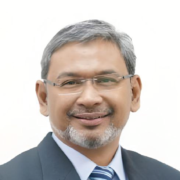
Dr Akhmal Yusof graduated from the Royal College of Surgeons in Ireland in 1992. He practiced medicine in the public & private hospital for nearly 10 years. He later ventured in the medical insurance industry with the American International Assurance Malaysia as Medical Manager. In 2002, he led the Medical Department in AstraZeneca Malaysia, Singapore & Brunei for 13 years. His main forte in the pharmaceutical industry is clinical research management, regulatory affairs, medical and government affairs. Currently, he leads Clinical Research Malaysia (CRM) as Chief Executive Officer since 2015. CRM is a Malaysia Ministry of Health owned Site Management Organisation. Established in 2012 to promote Sponsored Research in Malaysia. CRM is now an accredited ISO9001:2016 and ISO37001:2015. Through CRM Phase 1 Realisation Project (P1RP) Malaysia has started to conduct First in Human Clinical Trials. Dr Akhmal Yusof is also a member Board of Trustee and Chairman Nominating & Remuneration Committee for the National Institute of Biotechnology Malaysia.
Malaysia is committed to conduct Commercial Clinical Trials with Speed, Reliability & Quality since decades ago. The aspiration is further by the formation of research management organization, Clinical Research Malaysia (CRM) a wholly owned by Ministry of Health Malaysia. CRM is also an accredited ISO 9001 Quality Management System & ISO37001 Anti Bribery Management System accredited making it a trusted research management organization.
We have observed professional clinical research careers expanded with the growth Clinical Research industry over the years. Since CRM conception in 2012, Malaysia has conducted over 2000 commercial clinical research with contract values of USD 300 million across therapeutic areas with more than 2600 jobs created. CRM launched Phase 1 Realization Program (P1RP) to expand into First in Human & Phase 1 Clinical Trials.
The Covid-19 pandemic almost stall all infrastructure development plan for clinical research in Malaysia. The rigid system of regulatory approval requiring GMP-PICS certification contributed to lengthy processes review especially projects coming from non-member PICS.
CRM adopted a guiding principle of Humanity, Stability and Sustainability. Humanity helps us to focus on the greatest intangible value providing access to medicine for unmet medical needs. The value proposition offered by Malaysia with a third of world genomics resides in the country, dedicated investigators & clinical research sites with world class achievements has attracted global clinical trials into the country from variety Global companies.
12:10 – 12:30
新加坡临床研究与创新联盟 (CRIS) 及新加坡临床研究院 (SCRI) 的使命、愿景与实践

Catherine comes with 18 years of clinical trial experience, starting as a research nurse to managing projects in global companies. She has experience handling multi-country, multi-center, trials from feasibility to study closure, across Phase I-IV, and in therapeutics such as oncology, psychiatry, medical devices and rare diseases. Besides monitoring experience, she has also accumulated much experience in training, mentoring and improving operational processes in cross-cultural settings, particularly in the Asia-Pacific region. Currently as an innovation manager in a public agency, she plays an active role in the national level initiatives to contribute to the local clinical trial and healthcare enterprise. Throughout her career, she sees working in the clinical research industry as a calling and enjoys working in a cross-matrix environment, as well as seeking new ways of conducting business.
The presentation will outline the growth of Singapore Clinical Research Institute (SCRI) from a small standalone unit to become part of Singapore’s integral research and innovation consortium. The Consortium for Clinical Research and Innovation Singapore (CRIS) is made up of several business units (BUs), and all parts work together to serve the larger research and innovation enterprise in Singapore and even the region. The presentation will highlight several initiatives from SCRI and other sister BUs that strive to benefit the ecosystem through regional collaboration and partnership.
12:30 – 14:00
午餐
14:00 – 14:30
战略合作成立典礼
14:30 – 15:30
专题二:临床研究方法前沿
主持人:
万鳴先生,上海医药临床研究中心副总经理,中国
Dr Atara Ntekim,伊巴丹大学/大学学院医院首席研究员,尼日利亚
14:30 – 14:50
以真实世界数据支持药品上市审批:案例分享
黄志基教授,香港大学药理及药剂学系系主任,香港特别行政区
14:50 – 15:10
去中心化临床试验:潜力、挑战与应用

Mr Michael Stibilj joined Novotech as Chief Operating Officer in Oct 2020, following the merger of Novotech and PPC Group, previously working as Chief Executive Officer at PPC Group from Sep 2017, following TPG Capital Asia’s acquisition.
Worked with TPG Capital Asia as Senior Advisor, Healthcare June 2017-Dec 2021 supporting a number of projects
He has over 25 years CRO experience in a wide range of regional and global operations and strategic roles. Based in Singapore for 12 years, he lead the growth and development of the Clinical Development Services group across Asia Pacific for the largest healthcare services company, establishing operations in a number of new geographies across the region. In addition, he lead a number of global operational transformations and system implementations.
He holds a Master of Science from Sydney University.
The CoViD-19 pandemic caused a significant increase in Decentralised Clinical Trials (DCT). While, elements of DCT strategies have been available and utilised for more than 10 years prior to the pandemic, the industry saw a significant shift in levels of adoption, with 76% of pharmaceutical companies, device manufacturers, and CROs adopting decentralized techniques during the early phase of the pandemic.
Implementation of DCTs rely on the use of digital tools and technologies such as e-consent, apps, wearable devices, Electronic Patient-Reported Outcomes (ePRO), telemedicine, as well as moving trial activities to the patient’s home or local healthcare settings, through passive monitoring devices Vs active data collection procedures. With, just 5% of eligible patients participating in clinical research, the use of remote tools and methods show great potential for increasing trial efficiency and reducing barriers by facilitating participation outside of traditional clinical settings.
The regulatory agencies have raised concerns that racial and ethnic representation in clinical trials is inadequate and linked to health inequities. DCTs allow patients to participate regardless of where they live by removing logistical barriers, which then offers better access to the study and the investigational product and permit the inclusion of more diverse and more representative populations. Participants, particularly those from minority groups, cite geographical constraints, mistrust, miscommunication, and discrimination as barriers. However, key challenges recognized by regulators for DCTs include concerns regarding investigator oversight and participants' safety when physical examinations and face-to-face contact are limited.
To optimize inclusive participation in clinical trials, three factors of participant engagement have been identified that affect the successful conduct of clinical trials. They are the ability to identify and attract potential participants, retain participants and encouraging adherence, and involvement of patients and the public in the clinical trial industry. As we embark on the next stage of evolution of the clinical trial, there is great potential in the ability of patients, investigators, regulators and sponsors to build trust and confidence in these new approach and technologies, to increase synergies amongst these key stakeholders in the drug development industry.
15:10 – 15:30
临床研究的患者和公众参与
许重远教授,南方医科大学南方医院国家药物临床试验机构办公室主任,中国
15:30 – 16:00
茶歇
16:00 – 17:00
专题三:法规改革与创新
主持人:
西村勉博士,京都大学医院临床与转化科学研究所副教授,日本
Dr Carolin Auer,格拉茨医科大学研究管理主管,奥地利
16:00 – 16:20
ICH GCP之革新:E6(R3) 与 E8 指导原则的深远意义
Dr Thomas Hiemstra,葛兰素史克临床开发高级总监,英国
16:20 – 16:40
欧洲药品局 (EMA) 的电子系统与电子数据管理指导原则:重点与启示

After working as a physician in hospitals and employment in the pharmaceutical industry as clinical project director, Dr med Christiane Blankenstein joined the Technical University Munich, School of Medicine, where she has been director of the clinical trial unit Muenchner Studienzentrum for more than ten years. Combining about equal professional experience in the conduct of clinical trials from both an industry and academic research perspective, she looks forward to addressing some aspects on how technology is transforming and advancing clinical trials and weighing its chances and challenges.
Computerised systems are being increasingly used in clinical research. The complexity of such systems has evolved rapidly in the last few years from electronic case report forms (eCRF), electronic patient reported outcomes (ePROs) to various wearable devices used to continuously monitor trial participants for clinically relevant parameters and ultimately to the use of artificial intelligence (AI). Hence, there is a need to provide guidance to all stakeholders involved in clinical trials reflective of these changes in data types and trial types on the use of computerised systems and on the collection of electronic data, as this is important to ensure the quality and reliability of trial data, as well as the rights, dignity, safety and wellbeing of the trial participants. This would ultimately contribute to a robust decision-making process based on such clinical data. The EMA Guideline on Computerised Systems and Electronic Data in Clinical Trials describes some generally applicable principles and definition of key concepts. It also covers requirements and expectations for computerised systems, including validation, user management, security, and electronic data for the data life cycle. Requirements and expectations are also covered related to specific types of systems, processes, and data.
16:40 – 17:00
学术机构临床研究数据管治与瑞士个人化健康网络 (Swiss Personalized Health Network, SPHN) 倡议
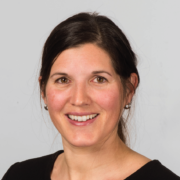
Studies of human medicine at University of Zurich (1999-2006).
Dissertation / thesis in Clinical Atherosclerosis Research in Zurich (2003-2006).
Specialization in Pharmaceutical Medicine, FMH Pharm. Med. (2007-2013).
More than 15 years of experience in clinical research, in pharmaceutical industry (Sanofi-Aventis, medical liaisons), Swiss Agency for Therapeutic Products Swissmedic (Medical Review, more than 30 GCP Inspections), regular participation in EMA GCP inspectors trainings.
Since 2011 at Clinical Trials Center (CTC; ISO 9001:2015 certified institution) of University Hospital Zurich (USZ) in different positions, since 2019 head CTC
Additional activities, Boards and Pannels:
SCTO Board of CTU directors (Swiss Clinical Trials Organisation SCTO)
ICN Steering Board (International clinical Trials Center Network; ICN)
Board Member of SAPM (Swiss Association of Pharm. Med. SAPM),
SSPT Council (Swiss Society of Pharmacology and Toxicology SSPT)
Board Member Health Tech Park Zurich
Data Governance Board USZ
Compliance Committee USZ
Clinical Ethics Committee USZ
The Swiss Personalized Health Network (SPHN) is a national Swiss initiative under the leadership of the Swiss Academy of Medical Sciences (SAMS). In collaboration with the Swiss Institute of Bioinformatics it contributes to the development, implementation and validation of coordinated data infrastructures in order to make health-relevant data interoperable and shareable for research in Switzerland.
SPHN has adopted a federative approach by building upon – and supporting – existing data sources and infrastructures across the country, including data governance boards and respective procedures at the local institutions. To make health data interoperable and accessible for research, SPHN rallies all decision-makers from key clinical, research-, research support institutions and patient organizations around the same table.
地点
香港尖沙咀弥敦道50号金域假日酒店
主办机构


支持机构
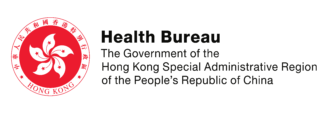







赞助商
钻石赞助商

铂金赞助商


金赞助商







技术赞助商

© 2023 Clinical Trials Centre, The University of Hong Kong.
All Rights Reserved.





